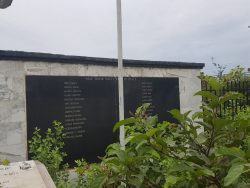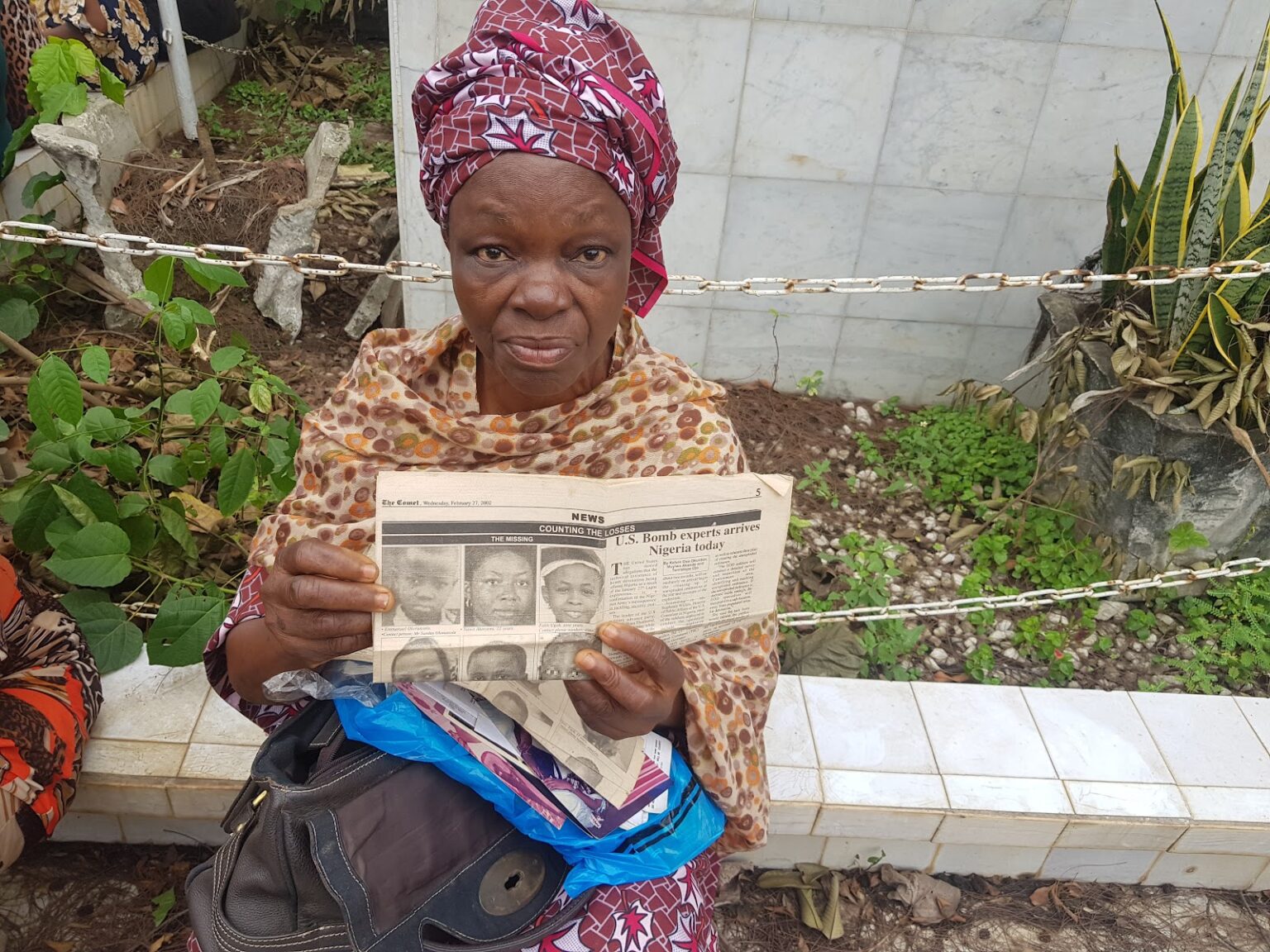By Odunewu Olusegun
As the nation marks the 21st anniversary of the Ikeja Cantonment bomb blast, an avoidable disaster, many Nigerians who lost their beloved ones to the incident are still looking to the government for the support promised to them.
At about 5 p.m. on Jan. 27, 2002, an explosion rang from the Military Cantonment in Ikeja, the capital of Lagos, the effect akin to that of an earthquake. Bombs and other explosive items had mistakenly been set off in the armoury section of the barracks.
While running helter-skelter, they heard several other explosions of the same intensity, and many thought a war had broken out. Aside from people who lost their lives directly to the explosion, the stampede also led to the deaths of others. Minute after minute, the death toll was rising.
As different streets were littered with corpses, a location that seemed to record the highest number of deaths was a large canal at Ajao Estate which links Oke-Afa in Isolo.
READ ALSO: Kogi Govt reveals those behind Thursday’s bomb blast in Okene
The surface of the canal was covered by water hyacinth so people running for safety thought it was dry land covered by bush. But as they jumped on it, they sank and drowned. The outcome was a mass grave with some families completely wiped off.
By the time the dust settled the following day, more than 1,000 lives had been lost. While some went missing and are yet to be seen to date, many became displaced and others sustained various injuries. Our reporter met with dozens of the victims.

Alhaja Akinola whose shop was a stone throw from Oke- Afa was attending to her customers when the bomb blast occurred.
“My other three daughters, Raliyat, Raheema and Monsurah, were all living in the Makinde area in Oshodi. They all scampered for safety alongside hundreds of people.
“When they got to Oke-Afa, Raliyat jumped into the canal thinking they were going to survive and others followed. That was the beginning of my predicament and I have since then not recovered from the trauma that followed the incident.”
Seeing the names of her children on the wall reminded Akinola of her early days with the deceased, explaining that she cries every time she remembers the pains she passed through during their birth.
21 years after, Alhaja Akinola and many other bereaved families are still grieving and many others whose homes were affected by the blast still remain homeless.
Another victim of the incident who spoke with National Daily, Deacon Ayobami, said the incident represents the darkest day of his life as he lost his 19-year-old son, a student of UNILAG, to the explosion.
READ ALSO: Tension as Police confirm bomb explosion killed 28 herdsmen
“I came there and saw many dead bodies but my son was not included. I later trekked to Apapa Police Station to lodge a complaint and also went to mortuaries to see if I could find his body but I never did,” he sighed.
He explained that his wife also died after many years battling hypertension, a condition that came after the incident.
“Life has since been horrible because he was a promising child. At some point, people said I was going mad because of how I usually talked about his disappearance. Losing my wife also complicated my pains.”
Proper forensic report of the event is yet to be seen and the outcome of the panel of inquiry set up after the incident has not been made public.
After visiting the scene of the tragedy alongside then Governor Bola Tinubu, Olusegun Obasanjo, president at the time, had promised to do justice to the matter.
National Daily gathered that since the explosion was caused due to negligence in the military cantonment, the Obasanjo-led administration set up a committee on Lagos Explosion Disaster Relief Fund (PC-LEDREF), headed by the then Secretary to the Federal Government, Ufot Ekaette.
The committee later paid an instant relief package of N500,000 ($1,197) per deceased person and N250,000 ($598) per missing person for the families to take care of immediate expenses.
Ekaette subsequently said the government would pay adequate compensation.
“Since then the Federal Government has not paid any compensation to any of us. After waiting fruitlessly for them for years to fulfil the promises, we consulted Femi Falana who wrote the government but nothing still,” said Nurudeen Oyegbemi, chairman of the association of victims, who also lost his son to the explosion.

 Health5 days ago
Health5 days ago
 Entertainment7 days ago
Entertainment7 days ago
 Crime6 days ago
Crime6 days ago
 Education1 week ago
Education1 week ago
 Health1 week ago
Health1 week ago
 Comments and Issues7 days ago
Comments and Issues7 days ago
 Football7 days ago
Football7 days ago
 Latest6 days ago
Latest6 days ago


